IWD: You can keep your pink cupcake
For International Women’s Day, our impassioned COO Erika Hamilton has put pen to paper to share how she truly feels about IWD and how to bring gender equality and equity into fruition.
I have always been a passionate advocate for the rights of women. I took the subject ‘Women’s Studies’ for two years in high school, have volunteered and campaigned for reproductive rights for regional women, rebuffed diet culture, experienced and fought against workplace harassment, actively contributed to the curation of women’s herstory and individual journeys, and identified as a feminist as soon as I understood the term.
When IWD comes around every March 8th, it always fills me with pride. The solidarity with women around the world to highlight the problems that face us every single day is always an encouraging feeling. This space, dedicated to discussing these issues in a group forum is valuable.
The downside of IWD I feel, is the virtual signaling that can be felt within both corporate and non-corporate organisations. No pink cupcake studded morning tea makes the inequality go away – particularly as these events are often organised (and cleaned up) by women within the organisation on top of their already overloaded plates. Waxing lyrical about how amazing women are and all they do for one day a year but doing the bare minimum for the systemic issues faced by women in the workplace for the rest of it is just plain hypocritical.
Working in a male dominated industry as I do can be exhausting. Having to recalibrate actions, deal with micro (and macro) aggressions and the mental gymnastics on how to ensure that your ideas and processes are listened to and adapted is a lot to handle. The proportion of female executives in the
tech industry is only 15%, with women in senior leadership positions
sitting at 20%. In addition, the
average age of a CEO in Australia is 47. So where does that leave people like me? A woman in her mid-twenties, living in remote Australia leading a team and trying to inspire people 10 and 20 years ahead of me?
To that, I say, ‘why not me?’
This statement was coined by Mindy Kaling, and her
book of the same name was released in 2015. Mindy is from an Indian migrant family, and operates in the television and writing industry, another particularly male dominated field. To help her have her seat at the table, she would always ask herself, ‘why not me?’ when she is presented with an opportunity that no one like her may have had in the past.
With this attitude in mind, I got myself into a very high seat at the table, working with an incredibly supportive team. Since being bestowed this position, I’ve continued making noise to move HutSix into the paradigm that aligns with the core values of gender equality, mutual respect and communication.
So, in lieu of a pink cupcake studded morning tea and toast from our CEO, I want to reflect on what we as HutSix have been able to accomplish over the past three years of our organisational transformation:
- We’re getting close to a 50/50 gender split in our team. In 2018, the four employees of HutSix were all men. In 2023, five out of eleven team members are women, with three of those women holding senior positions.
- Out of all of our clients, 30% are male and 20% of those report to female management within their own companies.
- We made a conscious decision to only accept work that makes the world a better place, and bring a purpose-led nature to the work that we do.
- We honour flexible working conditions – no, like we actually do it. HutSix is free from the ‘two days from home, three in office’, ‘business happens in business hours’ rules that fill other organisations. It doesn’t matter what the reason for flexibility is, we make it happen. This has been anything from working location, to working hours, to the types of projects, clients and team members the employee works with. We treat our employees with mutual respect and like the grown ups they are.
- Information is stored publicly in Jira products like Confluence and Jira Service Management, so it’s easy to share information and work together.
- Team members are actively mentored and supported to progress up the ladder – no matter their age, background or experience (look at me!).
I feel like the above isn’t rocket science or ground breaking (and I kind of feel that now re-reading my work), but when I speak about this in social and professional networks, I often get looks of shock and revelation that the luxury of understanding people as humans and treating them with mutual respect is truly possible.
That is the impact (or one of them) of having women in charge and listening to them. And that’s what IWD conversations should be centred around – how to best support women-led organisations to help make adjustments that are better for everyone.
So what do I want to do next? Well, here’s some of my thoughts:
- Increase parental leave no matter the gender beyond the government bare-minimum requirements
- Contribute to child care costs for working parents
- Continue to provide flexibility to all employees – whether they have children or not
- Increase sick leave to accommodate for menstrual, menopausal and fertility related leave
- Provide funding and mentoring opportunities for marginalised groups to participate in computing studies
- Fire Brad - ha, just kidding! Instead, I want to keep doing the opposite. Hire and retain men who want to work with strong women so we can help each other succeed.
So you can keep your pink cupcakes and morning tea washing up, I’ll take promotions, support, accountability by the men in our team, and more amazing female clients any day.
Now, get out of my way.



